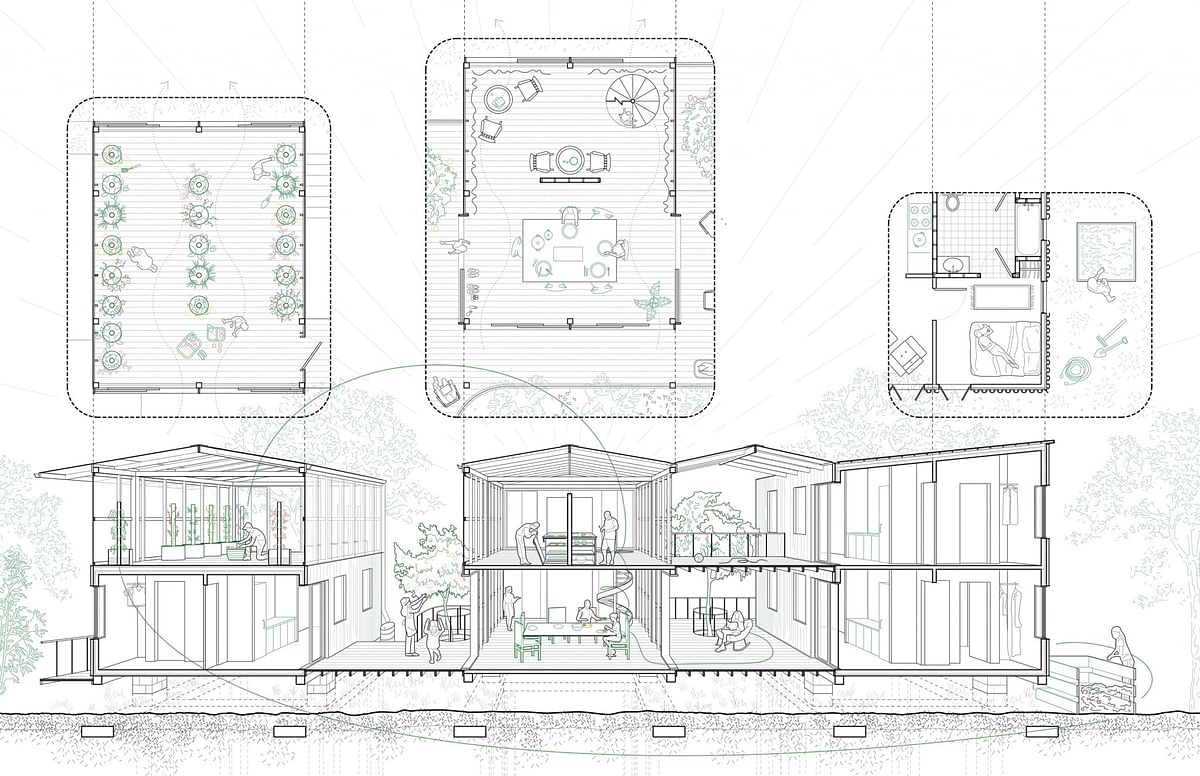Courses on climate budgeting and resilience selected for 2025 Course Development Prize in Architecture
By Josh Niland|
Friday, Jan 31, 2025

Related
The Association of Collegiate Schools of Architecture (ACSA), together with the Temple Hoyne Buell Center for the Study of American Architecture at Columbia University, have announced their annual selection of the Course Development Prize in Architecture, Climate Change, and Society.
Only courses taught at ACSA-accredited degree programs are eligible for the program and will be taught at ACSA member schools across the world in the coming years.
The 2025 Course Development Prize winners are:
Category I: Full Course
Carbon Budget Zero | Climate Positive
Sonsoles Vela, Tulane University
Description: "The course will explore questions related to climate adaptation across three iterations, each focusing on a distinct climate zone. The first iteration will concentrate on the Southeast climate, with the theme 'Reimagining New Neighborhoods as a Carbon Bank.' The second will address the Northeast climate, titled “Envisioning Adaptive Use as a Supportive Carbon Bank,” while also examining the limitations of adaptive reuse and emphasizing human-centric design. The final iteration will focus on the Pacific Southwest climate, titled “Transforming Adaptive Use and New Additions in Key Areas into a Carbon Bank.” Each phase of the research will identify a specific location where opportunities for new development, adaptations, or hybrid models can be explored, demonstrating the practical application of the research in real-world contexts."
Category II: Course Component
PLASTIC MARSH: Cycles and Cyclones on the Texas Coast
Daniel Jacobs, University of Houston
Description: "PLASTIC MARSH: Cycles and Cyclones on the Texas Gulf Coast is a third-year core studio that asks students to think about design across various territorial scales and through two primary research frames. First, projects will engage with contemporary cycles of matter and material, seeking new methods of assembling, disassembling, and reassembling architecture. Second, projects will engage with the flood-prone and ecologically sensitive landscape of coastal wetlands on the Texas Gulf Coast. Weaving together the impact of architectural material streams on our ecological relationships and the broader economic and territorial conditions of waste in the region, the studio asks: How can we restructure our habits and modes of life relative to these material movements? Speculating about how to build and rebuild in this drowning world, projects will study how to close the loop of our material ecosystems, restore coastal wetlands, and mitigate the impacts of nearby industrial landscapes. Internalizing the multi-scalar relations that link these specific sites to the broader conditions of the land and territory, each student will develop a cyclical, materially-driven program alongside a facility for wetland conservation and research practices."
Three Honorable Mentions from the University of Toronto, University of Texas at San Antonio, and Tecnológico de Monterrey, Querétaro campus were selected as well.


Share
0 Comments
Comment as :